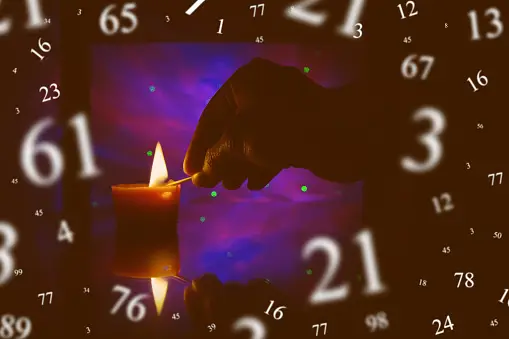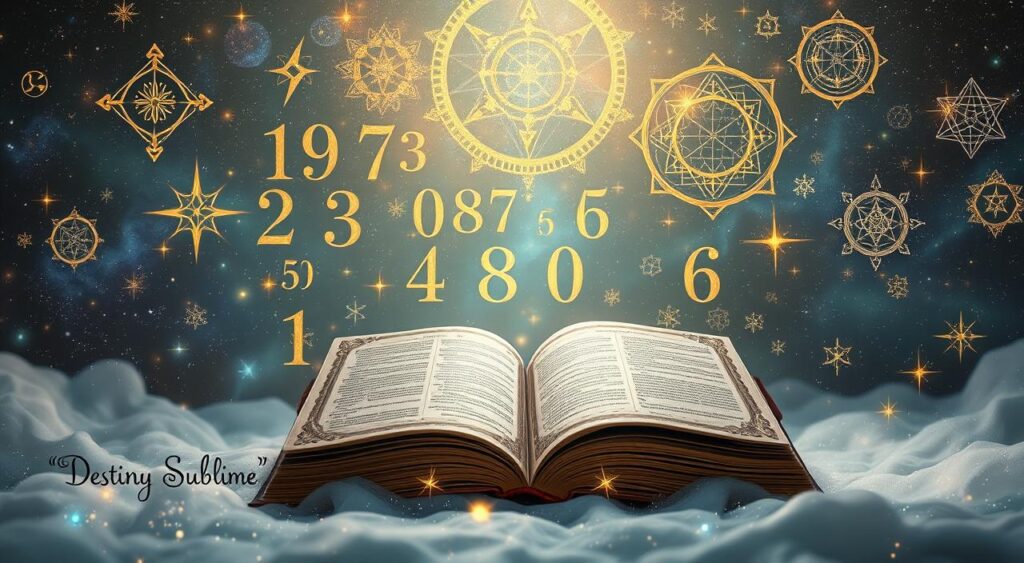Types Of Numerology:A Deeper Look

Types of Numerology: A Deeper Look
Numerology is the ancient study of numbers and their meanings. People have used numerology for centuries to understand themselves and the world around them. This guide will explore different types of numerology, from its historical roots to modern practices. Let’s dive into the fascinating world of numbers and see what they can reveal about us.
Key Takeaways
- Numerology has a rich history that spans various cultures and eras.
- Pythagorean Numerology focuses on calculating and interpreting core numbers like the Life Path Number.
- Chaldean Numerology has its unique system and practical uses, distinct from Pythagorean methods.
- Kabbalah Numerology offers spiritual insights through its unique approach to numbers.
- Chinese and Indian Numerology incorporate cultural beliefs, with specific numbers considered lucky or significant.
The Origins and History of Numerology
Numerology, the ancient practice of giving meaning to numbers, has fascinated cultures for centuries. Its origins trace back to ancient civilizations such as Babylon, Egypt, and China, where numbers were believed to hold spiritual, cosmic, and even predictive powers. These early societies used numbers in their mythology and astronomy, laying the groundwork for modern numerological systems.
Ancient Civilizations and Numerology
In ancient Egypt and Babylon, numerology was deeply connected to mythology and the stars. Numbers were not just for counting; they were seen as symbols with deep meanings. For example, the number seven was often linked to the divine and the cosmos.
The Evolution of Numerological Systems
As time went on, numerology evolved. The Greeks, especially Pythagoras, added a philosophical layer to it. Pythagoras believed that numbers were the essence of all things and could explain the universe. This idea influenced many other cultures and helped shape modern numerology.
Modern-Day Numerology
Today, numerology is a blend of ancient beliefs and modern interpretations. People use it to find insights into their lives, from personality traits to future events. While it may not be a science, it offers a unique way to understand the world and ourselves.
Pythagorean Numerology
The Pythagorean System Explained
Pythagorean Numerology, developed by the Greek philosopher and mathematician Pythagoras, is one of the most popular numerology systems. Pythagoras believed that everything could be broken down into numbers or mathematical calculations.
In this system, each letter of the alphabet is assigned a number from 1 to 9. By converting names and birthdates into numerical values and reducing them to single digits, you can uncover core numbers that reveal insights about your personality and life path.
Calculating Your Life Path Number
To calculate your Life Path Number, you need to add together the digits of your birthdate until you get a single digit.
For example, if your birthdate is July 20, 2005, you would add 7 (for July) + 2 + 0 + 2 + 0 + 0 + 5 = 16, and then 1 + 6 = 7. Your Life Path Number is 7. Each number has a unique meaning in Pythagorean Numerology. For instance, 1 is independent, ambitious, and assertive, while 7 is spiritual and introspective.
Interpreting Core Numbers
In addition to the Life Path Number, Pythagorean Numerology also includes other core numbers such as the Expression Number and the Soul Urge Number.
These numbers are derived from your name and provide further insights into your character and destiny. The Expression Number reveals your natural talents and abilities, while the Soul Urge Number uncovers your inner desires and motivations.
Understanding each number’s meaning in the Pythagorean Numerology system can help you gain a deeper understanding of yourself and your life’s purpose.
Chaldean Numerology
Chaldean numerology is one of the oldest forms of numerology, originating in ancient Babylon. Unlike other systems that link letters to numbers logically, Chaldean numerology assigns numbers based on the vibration of the letter. This unique approach helps you uncover specific areas of your life.
The Chaldean System Explained
In Chaldean numerology, each letter is assigned a number based on its sound or vibration. To find your compound Chaldean number, match the letters of your name to their corresponding numbers and add them together until you get a double-digit number. This number reveals deeper meanings behind your name.
Differences from Pythagorean Numerology
Chaldean numerology differs from Pythagorean numerology in several ways. While Pythagorean numerology uses a straightforward method of assigning numbers to letters, Chaldean numerology focuses on the vibrations emitted by each letter. This makes Chaldean numerology more complex but also more insightful.
Practical Applications of Chaldean Numerology
Chaldean numerology can be used in various aspects of life, from understanding your personality to making important decisions. By knowing your Chaldean numbers, you can gain insights into your strengths and weaknesses, helping you navigate life’s challenges more effectively.
Chaldean numerology consists of single and compound numbers. Each letter is assigned a number based on sounds or vibrations that help you unpack specific areas of your life.
Kabbalah Numerology
The Kabbalistic Approach to Numbers
Kabbalah Numerology is deeply rooted in Jewish mysticism and focuses on the internal knowledge rather than physical experiences. Each letter in the Hebrew alphabet holds a specific value, which signifies unique characteristics. This form of numerology helps you uncover hidden meanings and embark on a spiritual journey.
How to Calculate Kabbalah Numbers
To determine your Kabbalah number, use a chart that matches letters with numeric values. Add up the values from the letters in your first and middle name.
Divide the total by nine and add one to the remainder. The result is your Kabbalah number, which can point toward energies like progression, expansion, love, or success.
Spiritual Insights from Kabbalah Numerology
Kabbalah Numerology offers profound insights into your spirituality and self-awareness. By understanding your Kabbalah number, you can tap into various energies and vibrations that influence your life. This system is not just about numbers; it’s a journey into the metaphysical realm, helping you align with your true self.
Explore the power of Kabbalah Numerology! Uncover hidden meanings, ignite profound transformation, and embark on a spiritual journey.
Chinese Numerology
The Role of Numbers in Chinese Culture
In Chinese culture, numbers hold a special place and are often seen as symbols of luck and fortune. The significance of numbers can be traced back to ancient times, where they were used in various aspects of life, from architecture to daily activities.
For example, the number 8 is considered extremely lucky because it sounds like the word for wealth and prosperity. On the other hand, the number 4 is often avoided as it sounds like the word for death.
Lucky and Unlucky Numbers
Chinese numerology places a lot of emphasis on identifying lucky and unlucky numbers. Here is a quick guide:
| Number | Meaning |
|---|---|
| 1 | Unity |
| 2 | Harmony |
| 3 | Growth |
| 4 | Death |
| 5 | Change |
| 6 | Smooth |
| 7 | Togetherness |
| 8 | Wealth |
| 9 | Longevity |
Using Chinese Numerology in Daily Life
You can use Chinese numerology to make better decisions in your daily life. For instance, many people consult numerology before making important choices like buying a house or starting a business. The interpretation of numbers can offer valuable insights and help you avoid potential pitfalls. Some even use it for predictions about their future.
Understanding the role of numbers in Chinese culture can provide a deeper appreciation for their significance and how they influence daily life.
By incorporating these principles, you can harness the power of numerology to improve various aspects of your life.
Indian Numerology
Indian Numerology, also known as Tamil or Vedic Numerology, is one of the oldest forms of numerology. It uses numbers ranging from 1 to 9, each holding specific characteristics that help you understand yourself better.
This system includes three main numbers: Psychic Number, Destiny Number, and Name Number. Each of these numbers has its own importance and can offer insights into your personality traits and life challenges. Additionally, Indian Numerology is a smaller yet essential part of Astrology in India.
Master Numbers in Numerology
Master numbers are believed to bestow individuals with exceptional talents, abilities, and challenges. They represent a higher calling and a greater potential for those who possess them. In numerology, the master numbers are 11, 22, and 33. These numbers are not reduced to a single digit and hold special significance in your numerology chart.
Some numerologists refer to them as “difficult little blessings” because they come with both positive and negative attributes. Together, they form a trio of enlightenment.
Conclusion
In wrapping up our journey through the various types of numerology, it’s clear that this ancient practice offers a unique lens for self-reflection and understanding. Whether you’re a firm believer or just curious, numerology can provide meaningful insights into your life and the world around you.
So why not take a step into this fascinating realm? Discover what the numbers have to say about you and unlock new perspectives on your path forward.
Frequently Asked Questions
What is numerology?
Numerology is the study of numbers and how they relate to events in our lives. It is based on the idea that numbers have a special significance and can reveal hidden truths about us.
How do I calculate my Life Path Number?
To calculate your Life Path Number, add up the digits of your birth date until you get a single digit or a master number (11, 22, 33). For example, if you were born on July 20, 2003, you would add 7 + 2 + 0 + 2 + 0 + 0 + 3 = 14, and then 1 + 4 = 5. So, your Life Path Number would be 5.
What’s the difference between Pythagorean and Chaldean numerology?
Pythagorean numerology uses the numbers 1 to 9 and assigns them to letters of the alphabet in order. Chaldean numerology uses numbers 1 to 8 and assigns them to letters based on their sound vibrations. This makes them different in how they interpret your name and birth date.
Are some numbers considered luckier than others?
Yes, in many cultures, certain numbers are considered luckier than others. For example, in Chinese culture, the number 8 is seen as very lucky because it sounds like the word for wealth. On the other hand, the number 4 is often seen as unlucky because it sounds like the word for death.
Can numerology predict my future?
Numerology can give you insights into your personality and life path, but it is not a tool for predicting the future. It offers guidance and can help you make better decisions, but it doesn’t tell you exactly what will happen.
What are master numbers in numerology?
Master numbers are special numbers like 11, 22, and 33 that have extra significance in numerology. They are believed to have stronger vibrations and more potential for spiritual growth and insight.


